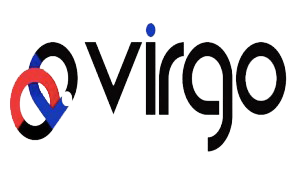Therefore, a mobile app’s success translates into adapting digital content to transcend seamlessly across varying screen sizes and a broad range of devices encompassing Android and iOS platforms. In the early years of mobile apps, the only way to ensure an app could perform optimally on any device was to develop the app natively. This meant that new code had to be written specifically for each device’s specific processor. Today, the majority of mobile applications developed are device-agnostic.

Global companies and start-ups alike have already leveraged Kotlin Multiplatform Mobile to optimize and accelerate their mobile development efforts. The benefits of this approach are apparent from the stories of the companies that have already adopted it. Due to code reusability, cross-platform applications require less code, and when it comes to coding, less code is more. Additionally, with fewer lines of code, there are fewer places for bugs to emerge, resulting in less time spent testing and maintaining your code. Keep an eye on loading types, if there are any lags, or if there are any responsiveness issues.
Better mobile apps, built faster and easier
According to App Annie, $73 billion USD in investments poured into mobile companies, thus showcasing a 27% growth year-over-year. Whether it is the MVP or the fully-fledged app, the launch is an essential stage where the app is made available for download. At this stage, a prepared marketing plan coinciding with app launch will help to accelerate downloads. According to Statista, there are approximately 3.48 million apps on Google Play Store and 2.22 million apps on Apple Store. According to another study by eMarketer, the average time spent on the app is significantly higher than the time spent on the web browser.
- A native framework is designed to build applications for a specific operating system, such as iOS, Android, or Windows.
- To release your native mobile app you must submit it to the appropriate app store, Apple App Store for iOS apps and Google Play for Android apps.
- Prior to starting mobile development, your team can establish a procedure for managing source code and generating app development builds for app QA testing.
- The course introduces you to modern JavaScript as well as to JSX, a JavaScript extension.
- But whether you’re creating cross-platform apps or native apps, you always need to prioritize the user experience.
- Enterprise mobile apps help you achieve more than what you could with a run-of-the-mill website or a legacy desktop software.
The Mobile Development course has greatly helped to jumpstart my career by teaching me best practices and giving me first-hand experience in programming for mobile devices. I always felt that every teacher cared about every student on an individual level, and made sure to keep both me and my classmates caught up to the best of their abilities. As the culmination of the program, students will be required to put an app on the App Store and share it with millions of users. This is a student’s chance to demonstrate their expertise and creativity, gain real-world experience, and build their portfolio. Plus, it’s an exciting opportunity to make a difference and attract potential employers or clients.
Software Testing
Founded in 2000, we create award-winning transformative digital products & platforms for startups and enterprises worldwide. However, a ballpark figure for mobile app development, according to a Clutch survey, reports an average cost of $171,450, with an extensive range from under $30K to over $700K. Here is a resource that talks about each of these mobile app development trends in detail. A native app is a platform-specific app that is capable of running only on a particular operating system. In other words, the business would have to develop apps differently for iOS and Android (i.e., to launch an app on both platforms, it will have to be coded twice). AI integration will improve user engagement and save businesses a lot of money.
Connect your mobile application to powerful cloud services to add features and improve usability. Employ APIs to integrate new features, such as advanced cloud-based services that can help you enhance your mobile apps. These include push notifications, IBM Watson®-powered AI analytics, Internet of Things smart device integration and more. Once you’ve selected the OS platform or platforms, you need to overcome the https://globalcloudteam.com/types-of-software-development/ limitations of mobile devices and usher your app all the way past the potential hurdles of distribution. Fortunately, by following a few basic guidelines and best practices, you can streamline your application development journey. Our mobile app developers have over a decade-long expertise in building solutions that meet market needs, empower companies’ brand identity, and encourage business growth and expansion.
Cross-platform App Development
OpenXcell has partnered with established products, software companies, software consultants, and marketing companies to bring in everything for providing you with all the best. Get tailored real-estate solutions that offer data-driven market insights, manage transactions and streamline processes for fulfilling customer expectations. A Smart Contract is an application of Blockchain, a technology that is unlocking the potential of business value.
Hybrid mobile applications are built with standard web technologies, including JavaScript, CSS, and HTML5, and then bundled as app installation packages. A web container offers a browser runtime https://globalcloudteam.com/ and a bridge for native device APIs using Apache Cordova. Hybrid mobile applications are a good option for companies that want to repurpose existing web applications and have a moderate budget.
Mobile App Development Services
You may also now see how the idea that mobile apps are built in a week and cost under $5,000 is a myth. Unfortunately the gig economy and news coverage on overnight successes promote a notion that successful mobile apps are inexpensive and easy to build. In our experience, average cost of mobile app development ranges in $150,000 – $200,000 and might cost even more for advanced mobile applications.

